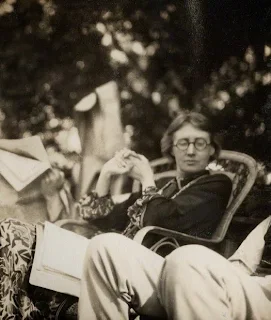Geoff Dyer recently wrote an essay about how one has an
allergic reaction to certain writers. Dyer’s allergy is to David Foster
Wallace. Now, Dyer is by no means my favorite essayist; and it makes sense that
a writer as encyclopedic as Wallace could repulse an essayist who once wrote
about his “reader’s block” – his struggle with reading new material, aka books,
which had come upon him counted myself in middle age. Myself, I have very fine
memories of reading Infinite Jest lying in bed in New Haven one winter. I
wanted the book to go on and on – and in that sense it was, for a long book,
not long enough.
However, perhaps something in my tastes has shifted. I
recently checked out Consider the Lobster, DFW’s essay collection, to dip into
essays that I remembered as being the most hilarious and clever things ever –
and I felt something different about them this time. I felt, well, that they
were lazy and not so good.
This surprised me.
It was the first essay in the collection, Big Red Son, which
is about the Las vegas adult movie awards, that I was beset with doubts. I was stopped by the sixth paragraph:
“Though the sub-line vagaries
of entertainment accounting are
legendary, it is universally
acknowledged that the US adult-film
industry, at $35—41 billion in
annual sales, rentals, cable charges,
and video-masturbation-booth
revenues, is an even larger and
more efficient moneymaking
machine than legitimate mainstream
American
cinema (the latter’s annual gross commonly estimated at $22.5 billion). The US adult
industry is centered in LA’s San Fer-
nando Valley, just over the
mountains from Hollywood.1 Some
insiders like to refer to the
adult industry as Hollywood‘s Evil Twin,
others as the mainstream’s Big
Red Son.”
I was rather dumbstruck that I
didn’t remember this, because one thing sticks out a mile, here: this is
complete and utter bullshit. I mean, just on the surface, it smelled of cop
statistics – the fearmongering exaggeration that one expects from cops announcing
the latest drugbust. The universal acknowledgement here was DFW’s way, in an
essay in which he employed the famous style of multiple notes, not to note one
thing that should be noted.
Granted, at the time Big Red
Son was written, the internet was not the automatic equalizer it has since
become, but still, just being conscious of what he was seeing, he should have
doubted the whole idea that the industry was making 45 billion a year.
So I did a little elementary
research myself, to track down these bogus figures. Luckily, someone had been
there before me: Dan Ackman, in an article published in Forbes in 2001. Ackman traces the ridiculous exagerations in the
size of the porn industry through an ill researched article by Frank Rich in
the NYT that estimated it at 10 billion to 14 billion per year through AVN –
the industry that sponsored the very awards ceremony that DFW was reporting on –
which claimed, again with no source, that the adult video industry grossed 4
billion dollars annually.
As Ackman, acting like someone
who understood what references are all about, soon discovers, there are
estimates of the porn industry, or aspects of it – which, contra the ‘universality”
of DFW’s claim, diminish radically the size of the industry. I am not being just a factchecking dick here: the very name
of the article signifies one of DFW’s major points about the place of porn in
America. It was a point too important to research. But Ackman easily cut through
the bullshit of what is “universally acknowledged”:
“The 1998
Forrester report pegs the online adult content market at $750 million to $1
billion, which was an increase from its initial estimate of $150 million. When
a study admits that its initial result was off by at least 80%, it’s hard to be
confident in the new result. In any event, Tom Rhinelander, a Forrester
research director, says they have given up trying to put a price on porn–either
on the Internet or otherwise.”
Ackman’s
article is not a work of art, but it has its funny moments, which sort of
squash the funny moments in Big red son:
“Its rival
research outfit, Net
Ratings , tracks the number
of visitors to porn Web sites. It says that in April 2001, there were 22.9
million unique visitors to porn sites. This says nothing about how long each
visitor stayed or whether they spent a dime. In any event, the number of
visitors is less than the number who visited news sites (41.1 million), finance
sites (34.2 million) or greeting card sites (25.5 million). When was the last
time you heard anyone talk about how greeting card sites dominate the Net?”
The gullibility
DFW
displays in this, one of his premier essays, is symptomatic of a certain
blinding conservatism in his work. It’s the acceptance of the cop side of
things. I won’t mention the hero worshipping essay about McCain’s run for the
presidency in 2000 – in 2000, all of America was temporarily hallucinating.
Still, to make a hero of a man whose job was to bomb civilians in North Vietnam
and who, even then, was transparent about his mad warmongering personality, is
too depressing for me to contemplate.
I couldn’t
finish the collection, which I once read with true delight. This saddened me. I
haven’t developed an allergy to DFW, but something in me, something provoked by
the last decade, has shifted.




